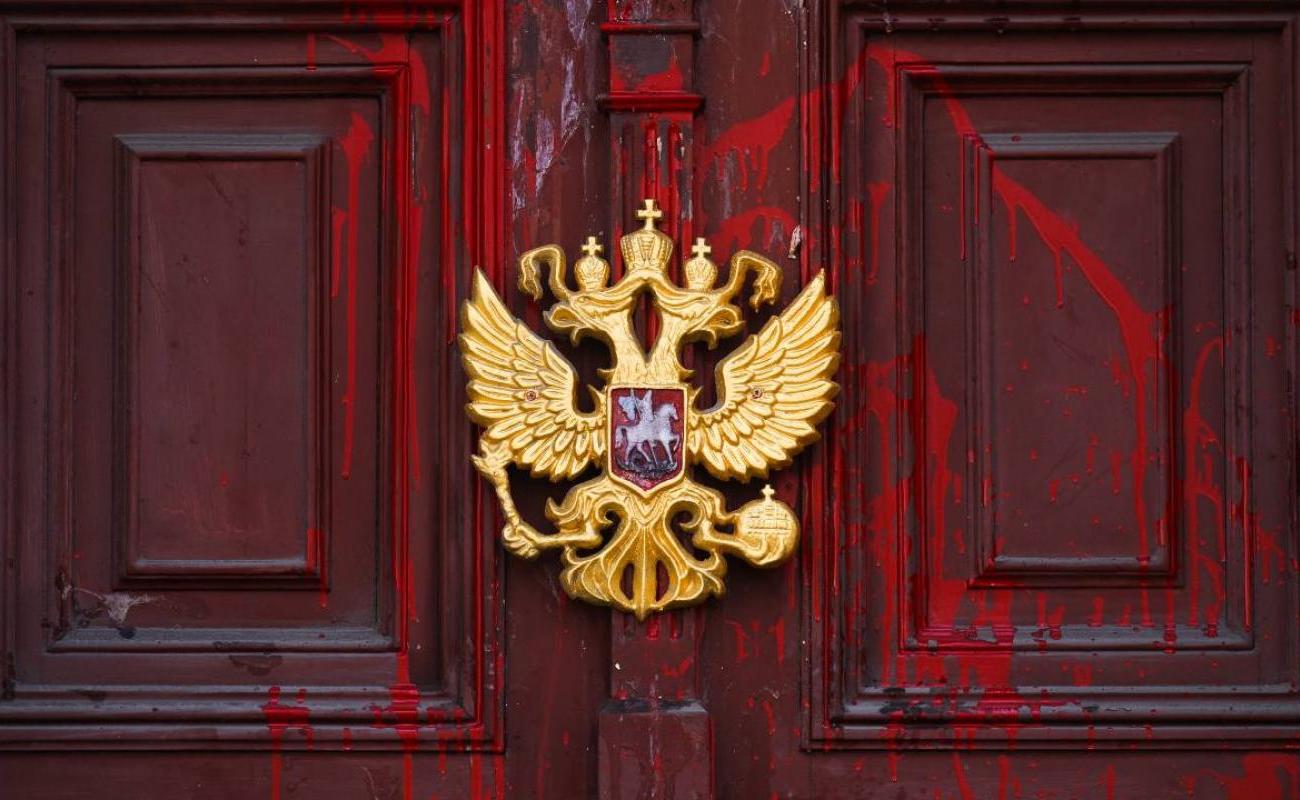Russia Raises Stakes With Attacks on the West

Sweden is the latest NATO ally to warn about the rising tide of sabotage by the Kremlin and its agents.
Perhaps it was only a matter of time. Now the Swedish Security Police, which is in charge of counterintelligence, reports that Russia is scouting out Swedish arms-makers. Kremlin-linked operatives are also conducting disinformation campaigns against defense companies and are even engaging in acts of sabotage.
In Germany, the authorities have alerted the logistics industry to a sudden spate of incidents involving parcels catching fire in transit. Even those of us used to worrying about threats to Western societies have been taken aback by such developments. Weapons businesses in particular should realize that these days they too are prime targets for hostile actors.
“We [the Swedish Security Police] have for some time been seeing indications of an increased willingness by Russia to take risks concerning its activities that threaten our security. It’s everything from influence operations all the way to sabotage, and it’s directed against the West and as a result also against Sweden,” the Swedish Security Police’s spokesman Karl Melin told Swedish National Television on August 29. At particular risk of such activities, the Swedish Security Police warns, are arms-makers. Undermining the West’s support is one of Russia’s key objectives.
The Swedish Security & Defence Industry Association (SOFF), which represents the country’s defense companies, reports that some of its members are already noticing Russian attempts to harm them. And in Germany, someone has been flying as many as five surveillance drones a night above gas and chemical facilities. This is not the work of some benign drone enthusiasts.
Swedish defense companies have also been subjected to cyber-attacks initially directed not against them (leading defense manufacturers unsurprisingly have good cyber defense) but against smaller companies in their supply chain. Such so-called supply-chain attacks are increasingly popular with hostile states and their helpers. They target the weakest link, and once that company is infected, it inadvertently spreads the harm.
And it doesn’t end there. Swedish defense manufacturers are also being subjected to malign influence campaigns attempting to discredit them and their weapons. Such campaigns are, of course, designed to harm people’s confidence in the companies — not to mention Ukrainians’ confidence in the ability of its Western allies to supply them with useful equipment.
Intruders are also trying to, digitally or physically, access the manufacturers’ sites to get information about their operations or sabotage them. While it’s the Swedish Security Police and SOFF who have raised the alarm this time (and Sweden has a disproportionately large defense industry), other countries’ defense manufacturers are of course being targeted too. In Germany, Russia even planned to assassinate the chief executive of the German arms maker Rheinmetall, one of several murder plots uncovered by US intelligence.
Indeed, they’re a priority target because they’re producing the wares that will increase Western deterrence of Russian aggression and because in many cases Western governments buy their weapons to send to Ukraine. The Nordic and Baltic states of Denmark, Estonia, Lithuania, Latvia, Finland, and Sweden, claim the top spots in the percentage of GDP given in aid to Ukraine.
The problem is far broader than just weapons manufacturers. In Germany, the BKA (the federal criminal police) and the BfV (the domestic intelligence service) recently alerted aviation and logistics companies to the sudden appearance of parcels that had caught fire while in transit to European destinations.
These were not accidents: the parcels contained flammable liquids and incendiary devices. In July, for example, a package sent from a Baltic state to an address elsewhere in Europe caught fire at DHL’s logistics hub in Leipzig, which spread to the rest of the container carrying it. The BKA and the BfV have asked German aviation and logistics companies to ensure their employees are aware of the increased risk. Logistics companies say they’re enhancing scrutiny.
Companies are used to the occasional competitor engaging in destructive and even illegal behavior, but like the harm directed against arms-makers, the incidents involving logistics firms point in another direction: Russia.
To be sure, we shouldn’t automatically assume that the Kremlin is behind every mysterious incident. Continuing arguments as to whether Ukraine might have sabotaged the Nord Stream gas pipelines act as a reminder.
However, the Swedish Security Police decided to speak publicly about the targeting of defense companies only after ascertaining the nature of the perpetrators. In a letter to the industry, the BKA and the BfV note that the significant cost of sending the fire-developing parcels that caught fire far exceeded their value.
The senders, in other words, sent the packages with the intent to cause harm. “The improvised incendiary devices were deliberately sent to damage freight service companies and other logistical infrastructure in Western countries,” the two agencies stated in their letter.
That’s exactly the point. To be successful, hostile states and their proxies don’t need to disable entire industries. They just need to sow fear among ordinary citizens. Learning that their defense manufacturers are targeted by Russia may prompt many Europeans to think that aiding Ukraine and enhancing our own defenses isn’t worth the price.
That, though, would allow intimidation to prevail.
A better course is to make sure everyone is aware of the threats. The Swedish Security Police, BKA, and BfV have done good work. We’ll no doubt see many more interventions very soon.
Elisabeth Braw is a Senior Fellow at the Atlantic Council.
Europe’s Edge is CEPA’s online journal covering critical topics on the foreign policy docket across Europe and North America. All opinions are those of the author and do not necessarily represent the position or views of the institutions they represent or the Center for European Policy Analysis.
